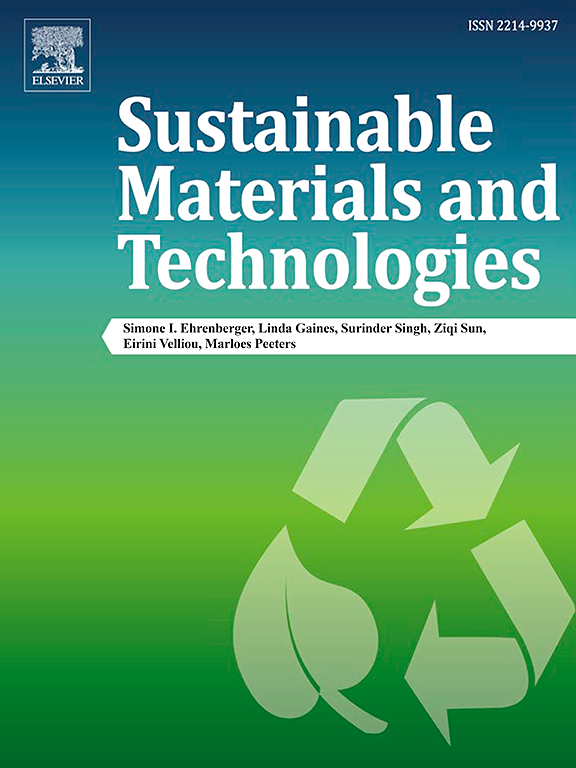Research on prediction of energy density and power density of biomass carbon-based supercapacitors based on machine learning
IF 8.6
2区 工程技术
Q1 ENERGY & FUELS
引用次数: 0
Abstract
The advancement of computer technology has made machine learning models widely used to study the electrochemical performance of supercapacitors, thus accelerating material discovery and performance optimization. From the perspective of biomass raw material characteristics, this study innovatively predicts the energy density and power density of biomass carbon-based supercapacitors based on Extreme Gradient Boosting (XGBoost), Light Gradient Boosting Machine (LightGBM), and Deep-Learning Neural Network (DNN) models. The results show that the LightGBM model performs best in energy density prediction, with R2 reaching 0.922. The XGBoost model has the best effect on the power density prediction, and the R2 is as high as 0.984. At the same time, through the analysis of SHAP value, it is found that biomass raw materials' composition and activation conditions are important characteristics affecting energy density and power density, which is very important for optimizing the performance of carbon materials. Therefore, it is a feasible method to predict supercapacitors' energy and power density from the perspective of the characteristics of biomass raw materials. This provides a reliable and valuable method for optimizing the performance of supercapacitors and predicting other performance parameters.
基于机器学习的生物质碳基超级电容器能量密度和功率密度预测研究
计算机技术的进步使得机器学习模型被广泛用于研究超级电容器的电化学性能,从而加速了材料的发现和性能优化。本研究从生物质原料特性出发,创新性地基于极端梯度增强(XGBoost)、光梯度增强机(LightGBM)和深度学习神经网络(DNN)模型对生物质碳基超级电容器的能量密度和功率密度进行了预测。结果表明,LightGBM模型对能量密度的预测效果最好,R2达到0.922。XGBoost模型对功率密度的预测效果最好,R2高达0.984。同时,通过对SHAP值的分析,发现生物质原料的组成和活化条件是影响能量密度和功率密度的重要特征,这对于优化碳材料的性能非常重要。因此,从生物质原料特性的角度来预测超级电容器的能量和功率密度是一种可行的方法。这为优化超级电容器的性能和预测其他性能参数提供了可靠而有价值的方法。
本文章由计算机程序翻译,如有差异,请以英文原文为准。
求助全文
约1分钟内获得全文
求助全文
来源期刊

Sustainable Materials and Technologies
Energy-Renewable Energy, Sustainability and the Environment
CiteScore
13.40
自引率
4.20%
发文量
158
审稿时长
45 days
期刊介绍:
Sustainable Materials and Technologies (SM&T), an international, cross-disciplinary, fully open access journal published by Elsevier, focuses on original full-length research articles and reviews. It covers applied or fundamental science of nano-, micro-, meso-, and macro-scale aspects of materials and technologies for sustainable development. SM&T gives special attention to contributions that bridge the knowledge gap between materials and system designs.
 求助内容:
求助内容: 应助结果提醒方式:
应助结果提醒方式:


